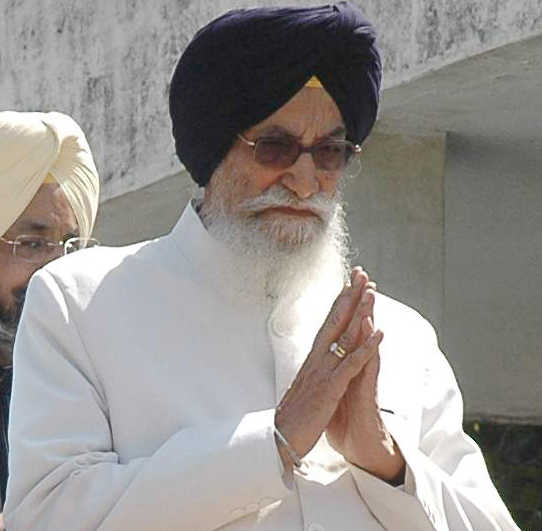
Surjit Singh Barnala.
Chandigarh, January 14
Surjit Singh Barnala, who almost became Prime Minister in the mid-90s but for his party ditching him, was a moderate Akali politician and played a role in the Rajiv-Longowal Accord that catapulted him to the chief minister's seat in Punjab during its worst period of militancy.
Painter, politician and author, 91-year-old Barnala was among the few who held various posts, including that of Chief Minister, Governor and Union Minister.
Barnala was a candidate of the BJP and its allies in the election of the Vice-President of India in 1997. But in the previous year, he almost emerged as a consensus candidate for prime ministership when motley combine of parties formed the United Front after defeat of Congress.
His party Akali Dal, however, did not support him as it chose to go with the BJP which had just lost power after 13 days in government.
When Punjab was rocked by militancy in the 80s, Barnala stood by another moderate Akali leader Sant Harchand Singh Longowal who signed the Punjab Peace Accord in 1985 with Rajiv Gandhi, months after he had become Prime Minister.
Barnala was elected from the Barnala assembly constituency during the 1985 assembly polls held after the signing of the Rajiv Longowal accord.
He was unanimously elected leader of the Shiromani Akali Dal (SAD) legislature party on September 27, 1985. He remained Chief Minister till May 11, 1987 during the peak period of militancy.
He was elected acting president of SAD on August 25, 1985, following the assassination of Longowal by terrorists.
Barnala was appointed Governor of Tamil Nadu a post he held from May 1990 to February 1991. He was Governor of Tamil Nadu for a second time from Nov 2004 to August 2011 holding two successive tenures.
In his first term as Governor of Tamil Nadu, Barnala had famously refused to recommend dismissal of the DMK government in 1991 when the late Chandrashekhar was the Prime Minister for a short time. When he was transferred to Bihar following his refusal, he chose to resign as Governor.
The government headed by Chandrashekhar then dismissed the Karunanidhi ministry using the "otherwise" provision in Article 356 of the Constitution after Barnala's refusal to make a recommendation.
Barnala was a five-time member of Punjab Assembly -- 1967, 1969, 1972, 1980 and 1985 -- and twice a member of the Lok Sabha in 1977 and 1998.
He entered politics in 1952 and unsuccessfully contested from Dhanaula assembly constituency losing by just three votes.
Barnala was Education Minister in the Gurnam Singh government and was instrumental in setting of the Guru Nanak Dev University at Amritsar.
He fought the Lok Sabha elections for the first time in 1977 and served as Union Agriculture, Irrigation, Water Resources, Forests minister in the Morarji Desai-led Janata Party government from 1977 to 1980.
He was also Union Minister for Consumer Affairs, Power, Chemical and Fertilisers and Rural Development and signed the historic Ganga Waters Agreement (Farakka Agreement) with Bangladesh.
In 1998, Barnala was again elected to Parliament and became the minister for Chemical & Fertilisers and Food & Consumer Affairs in the Atal Behari Vajpayee Cabinet.
Following the rift with Parkash Singh Badal and bifurcation of the SAD, he resigned from the post of party president but was later on again made president.
After his differences with Badal, he became patron of a four-party alliance and formed the ‘Sanjha Morcha’ in Punjab but it failed to make any impact.
Barnala authored "Story of an Escape" which was translated from English to Punjabi, Hindi and Urdu. His second book "My Other Two Daughters" was also transliterated in Braille by Kunwar Singh Negi.
Barnala had faced tragedies on the personal front. His youngest son Neelinder died in a road accident in 1996 and his daughter Amrit Kaur died of cancer in 2012.
He is survived by his wife Surjit Kaur and two sons Jasjit and Gaganjit. — PTI



























